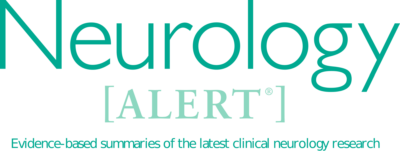
Neurology Alert – April 1, 2009
April 1, 2009
View Issues
-
Deep Brain Stimulation for Parkinson's Disease: A Randomized, Controlled Study Answers Many Remaining Questions
Deep brain stimulation significantly increases "on" time, reduces dyskinesias, reduces "off" time, and improves various quality-of-life measures compared with best medical therapy in patients with moderate to advanced Parkinson's disease. -
Natural Anti-amyloid Autoantibodies in Alzheimer's Disease
The spontaneous development of anti-amyloid antibodies may have an impact on the development of plaques and Alzheimer's disease. -
Functional Recovery Despite Status Epilepticus in Post-Anoxic Coma
Postanoxic status epilepticus does not necessarily imply irreversible and fatal brain injury. -
Lean, Lanky, Smoky, Head-achy: At Risk of Cervical Artery Dissection?
Risk factors for spontaneous dissection of carotid and vertebral arteries include smoking, migraine, and a tall, thin body. Women are at increased risk of dissecting multiple arteries. -
Rituximab for Myasthenia
The monoclonal antibody, rituximab, appears to benefit patients with myasthenia gravis that is refractory to other modalities. -
Risk of Shingles with Tumor Necrosis Factor Antibodies
When compared with conventional disease-modifying anti-rheumatic drugs (DMARD), tumor necrosis factor (TNF)-Alpha antibody treatment for rheumatoid arthritis (RA) may increase the risk of herpes zoster. -
Clinical Briefs in Primary Care Supplement
-
Pharmacology Watch
Individualization of therapy with pharmacogenetics; the rate vs rhythm debate; the FDA's Risk Evaluation and Mitigation Strategy; FDA actions.
